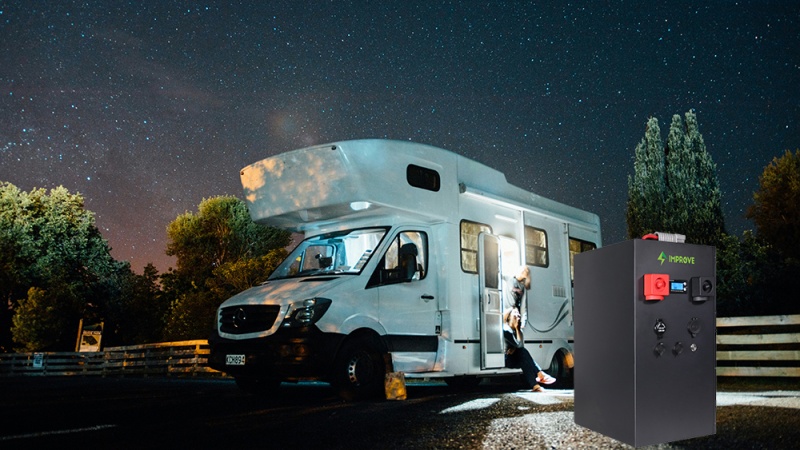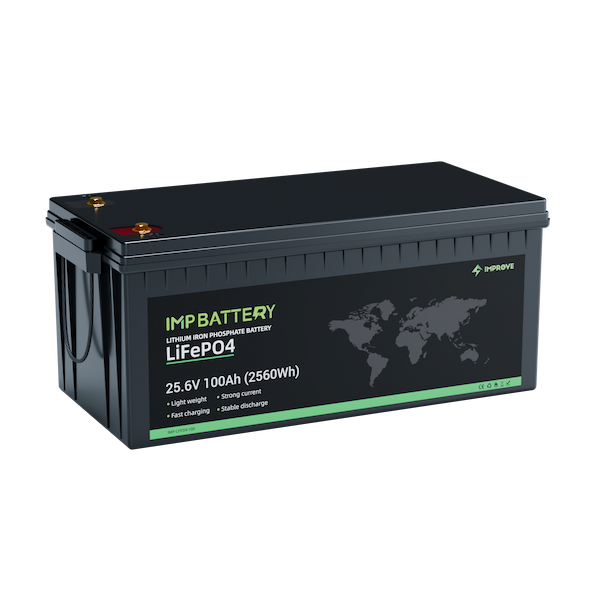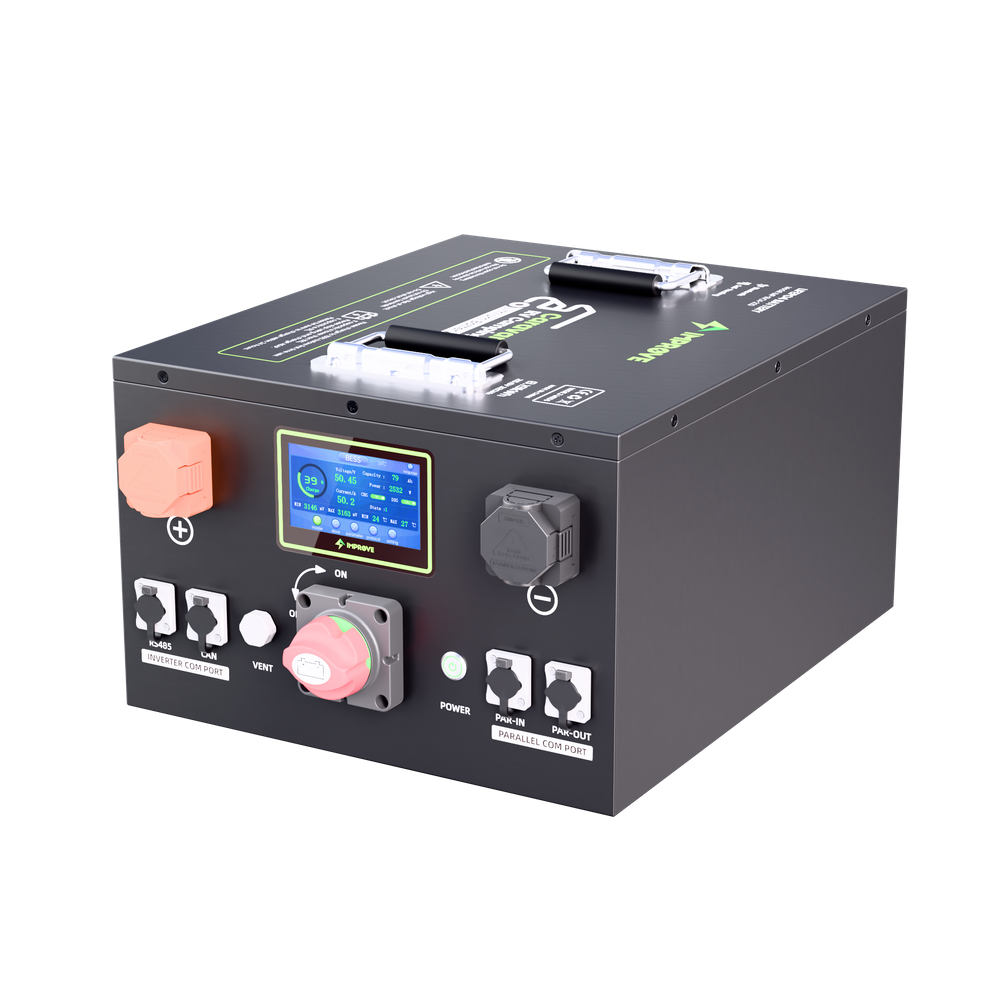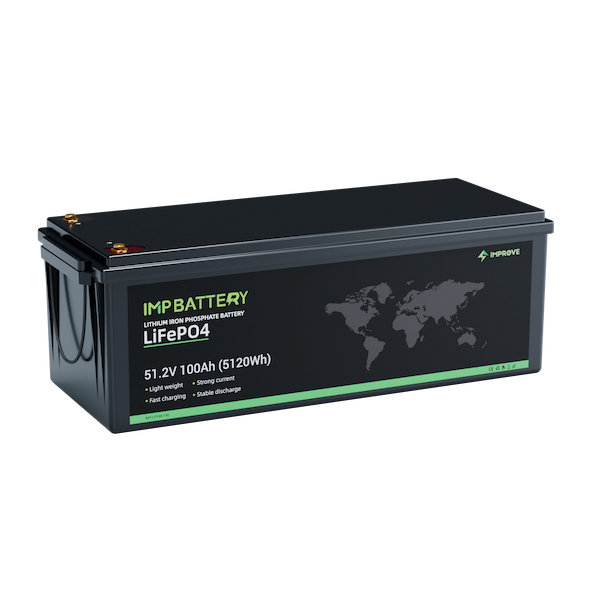When it comes to powering your RV, the right battery setup is crucial for a smooth and enjoyable camping experience. Traditional lead-acid batteries have been a standard choice for years, but with advancing technology, RVers now have the option of upgrading to an RV lithium battery system. In this blog post, we will explore the benefits of an RV lithium battery upgrade and help you determine how many lithium batteries you may need for your specific RV setup.
Before we delve into the number of lithium batteries required, let's first understand what an RV lithium battery upgrade entails. A lithium battery upgrade for RV involves replacing traditional lead-acid batteries with advanced lithium-ion batteries. The RV lithium battery system offers several advantages that make it an attractive choice for many RV enthusiasts.
Advantages of an RV Lithium Battery Upgrade:
- Higher Energy Density: RV lithium batteries have a higher energy density compared to lead-acid batteries, meaning they can store more power in a smaller and lighter package. This characteristic is ideal for RVers looking to reduce weight and maximize available space within their vehicles.
- Longer Lifespan: Lithium batteries have a significantly longer lifespan than lead-acid batteries, making them a cost-effective long-term investment for your RV. A well-maintained lithium battery can last up to 10 years or more, whereas lead-acid batteries typically need replacement every 3-5 years.
- Faster Recharging Times: The high charge acceptance of RV lithium batteries allows for faster recharging times, reducing downtime and providing more flexibility during your travels. With an RV lithium battery upgrade, you can recharge your batteries more quickly and efficiently, even when time is limited.
- High Discharge Rates: Lithium batteries can handle higher discharge rates compared to lead-acid batteries, making them suitable for power-hungry appliances and electronics in your RV.
Factors Affecting the Number of Lithium Batteries Needed:
The number of lithium batteries required for your RV depends on various factors that influence your power consumption and energy needs during camping trips. Here are some key considerations:
- Energy Consumption: Assess your RV's power consumption by calculating the total wattage of all the appliances, electronics, and systems you intend to use. Pay special attention to energy-intensive devices like air conditioners, refrigerators, and heaters, as they significantly impact your power requirements.
- Trip Duration: Consider the length of your camping trips and the frequency of recharging opportunities. Longer trips with limited access to shore power may necessitate more batteries to ensure an adequate power supply throughout your journey.
- Solar Panel Setup: If you plan to integrate solar panels with your RV lithium battery system, consider the solar panel capacity and the average amount of sunlight you can expect during your travels. Solar panels can help recharge your lithium batteries during the day, reducing the number of batteries needed.
- Inverter Capacity: The size of your inverter also influences the number of lithium batteries required. An inverter converts DC power from the batteries into AC power for your appliances. Ensure your inverter can handle the combined wattage of all the devices you'll be using simultaneously.
Calculating the Number of Lithium Batteries:
To estimate the number of lithium batteries needed for your RV, follow these steps:
Step 1: Determine Your Daily Energy Consumption
- List all the electrical devices you plan to use and note their wattage.
- Estimate the average number of hours each device will be used per day.
- Calculate the total daily energy consumption in watt-hours (Wh) by multiplying the wattage of each device by the hours of use and summing the values.
Step 2: Determine the Battery Capacity
- Consider the usable capacity of the lithium batteries. Lithium batteries should not be discharged below a certain percentage of their capacity to ensure longevity (e.g., 80% depth of discharge).
- Divide your daily energy consumption by the usable capacity percentage to find the total battery capacity needed in watt-hours.
Step 3: Choose the Right Lithium Battery
- Select a suitable lithium battery model that meets or exceeds the total battery capacity calculated in Step 2. Consider factors like voltage, amp-hour rating, and overall performance.
Step 4: Finalize the Number of Batteries
- Divide the total battery capacity needed by the capacity of the selected lithium battery model to find the number of batteries required.
An RV lithium battery upgrade offers numerous advantages, including higher energy density, longer lifespan, faster recharging times, and better performance. To determine how many lithium batteries you need for your RV, assess your energy consumption, trip duration, solar panel setup, and inverter capacity. By making these calculations, you can make an informed decision and enjoy a reliable power system during your RV adventures.
Remember, investing in an RV lithium battery system is a significant decision. Ensure you choose a reputable supplier and consult with experts to find the best lithium battery upgrade for your specific RV setup. With the right number of lithium batteries, you'll unlock the full potential of your RV and embark on memorable journeys with confidence and convenience.








